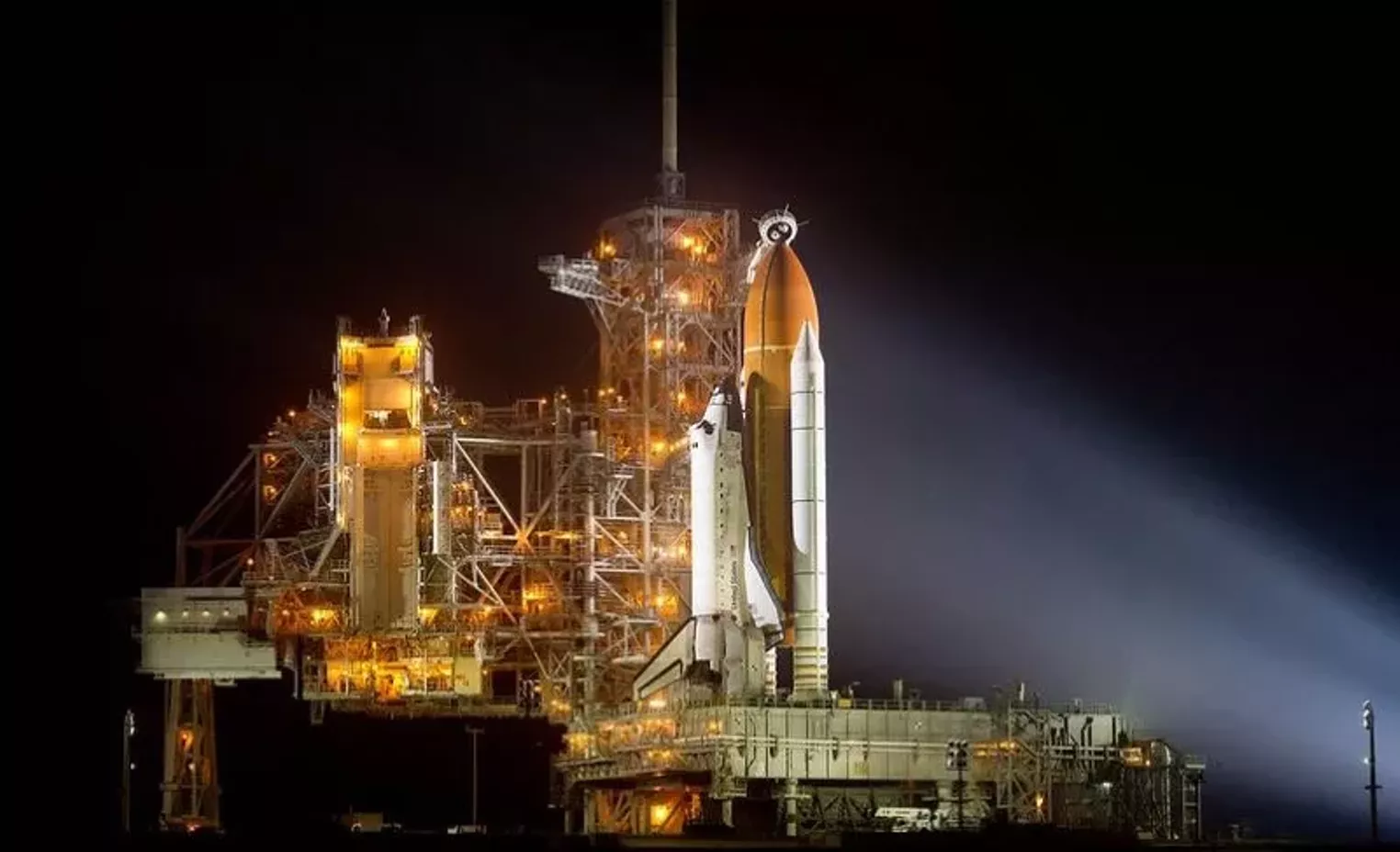Houston, we might still get a shuttle. President Donald Trump’s domestic policy bill, which was voted out of the U.S. Senate and sent over to the U.S. House of Representatives on Tuesday, now includes a little something in it for Houston, i.e. the 172,000-pound space shuttle, Discovery.
As we’ve noted before, despite being the home of human spaceflight, with every space shuttle expedition from 1980 through 2011 being run out of NASA’s Johnson Space Center, when the shuttle program ended Houston didn’t get one of the four shuttles NASA opted to retire and send out to locations across the country.
Instead, the four shuttles were awarded to the Kennedy Space Center in Florida, the California Science Center in Los Angeles, the Intrepid Sea, Air and Space Museum in New York City and the Smithsonian National Air and Space Museum’s Steven F. Udvar Center in Virginia.
Back in April, Texas senators John Cornyn and Ted Cruz decided to attempt to remedy this. The senatorial duo introduced the “Bring the Space Shuttle Home Act”, aimed at, as you might expect, finally snagging a space shuttle for Space City. “It is past time that the Space Center Houston Museum houses a space shuttle, given the unique relationship between the entire program and its support staff in Houston,” Cruz stated at the time.
However, their bill failed to gain any traction on its own and it looked like the effort was going to die along with all the other proposed legislation that gets cleared out at the end of each legislative session. Until the proposal got tucked into the $9.9 billion NASA appropriation in the “big beautiful bill” that Trump has demanded be delivered on his desk for signing this Friday.
So now, the key to the Trump administration’s legislative agenda, an 887-page widely tome which stands to increase the nation’s deficit by more than $4 trillion, push roughly 12 million people off of Medicaid, increase taxes for the poorest people in the country by about $1,600 a year, and defund wind and solar energy projects to the point of potentially killing the nascent industry along with a plethora of other measures, also includes a provision that will allow Texas to swipe the Smithsonian’s shuttle.
It remains to be seen if the bill will make it through the House, and from there if the provision will make it into the version that lands on Trump’s desk. The Senate bill, with the shuttle provision included, squeaked through the Senate with Vice President J.D. Vance casting the deciding vote on Tuesday.
Now, Rep. Randy Weber has pledged to add the provision to the House version of the bill. In the House, the bill will only be passed along party lines and is facing slim margins as deficit hawks balk at the deficit increase.
If the bill, shuttle provision included, does make it through, Texas will have the go-ahead to take the Smithsonian’s shuttle, Discovery, the only space shuttle that is still directly owned by the federal government, according to Cornyn and Cruz’s legislation.
It’s unclear how much moving the shuttle will cost though. The original bill provides for $85 million in funding to move Discovery across the country, but the Smithsonian’s National Air and Space Museum has told Congress that it estimates it will take between $200 million and $300 million to actually complete the move and build a museum-grade space to house the spacecraft. The shuttle provision in the “big beautiful” bill only states it will provide “no less than $5 million.”
Meanwhile, Smithsonian officials are not exactly thrilled at the prospect of losing their shuttle, calling the move “unprecedented” in its report to Congress. Smithsonian officials also dispute claims that the federal government still owns the shuttle since ownership was transferred to the National Air and Space Museum.
If the provision stays in the bill, we’ll just have to see if a question of ownership stops Cruz and Cornyn – who is facing a primary challenge from state Attorney Gen. Ken Paxton and seems eager to please these days – from heading over to Virginia and trying to haul the shuttle down to Texas themselves.
